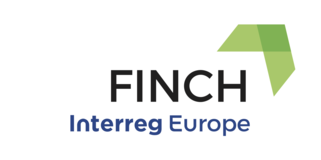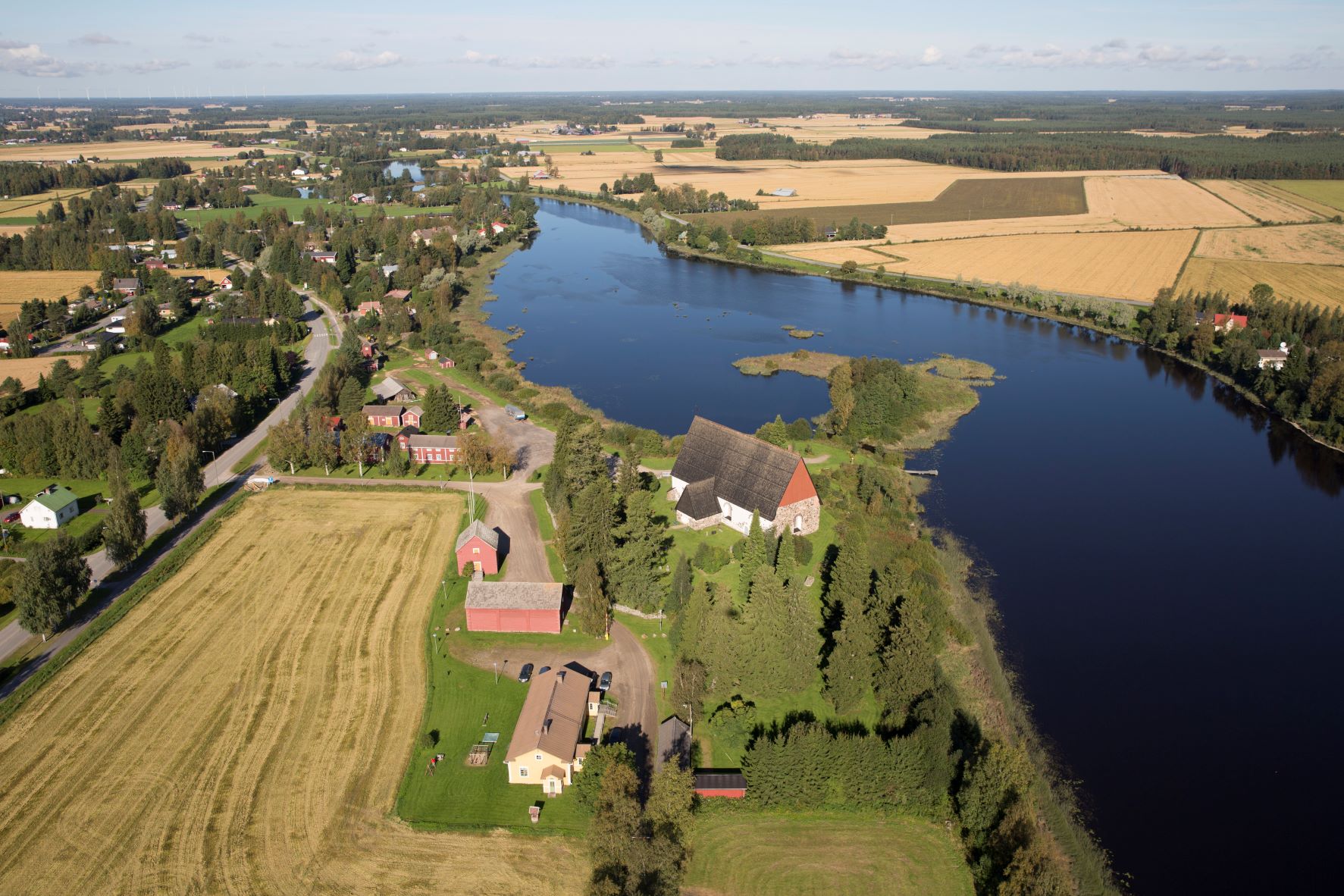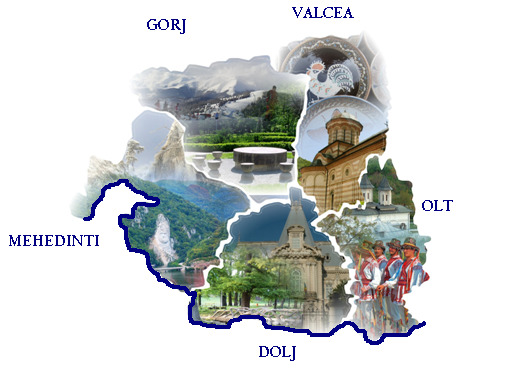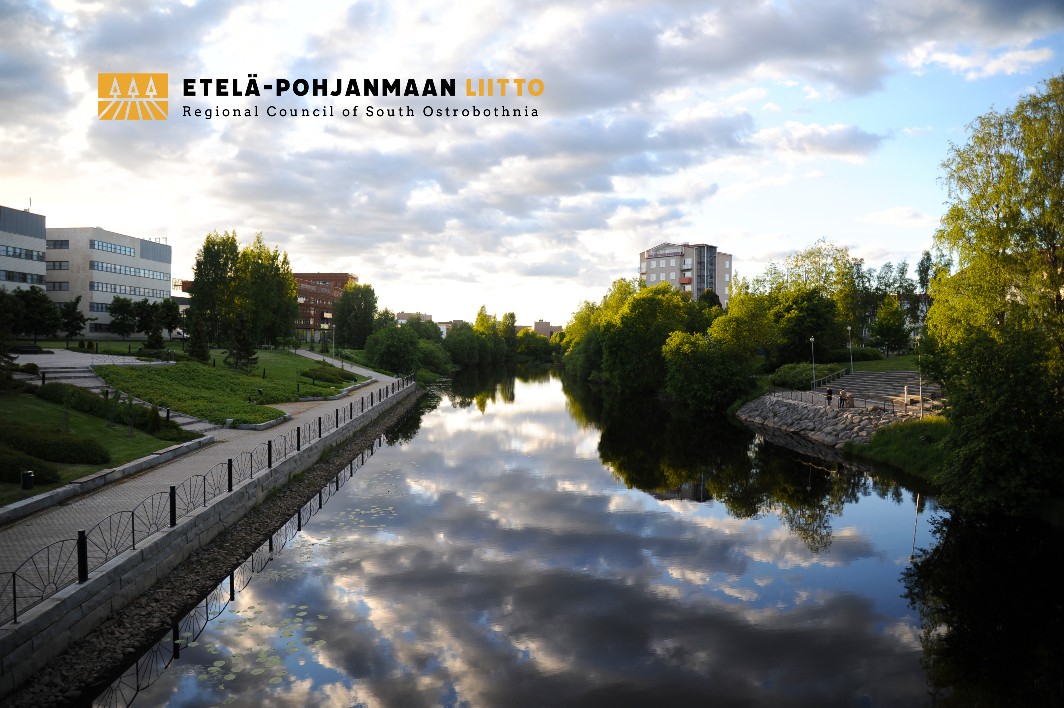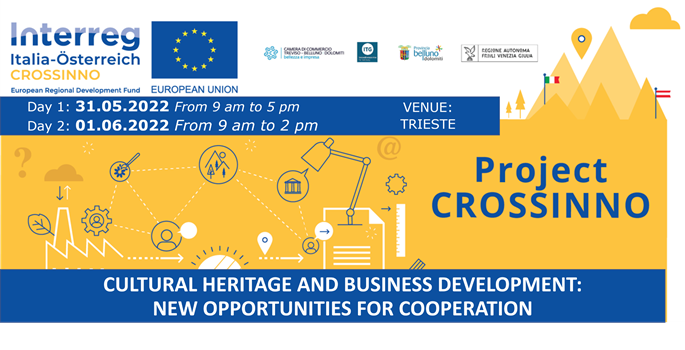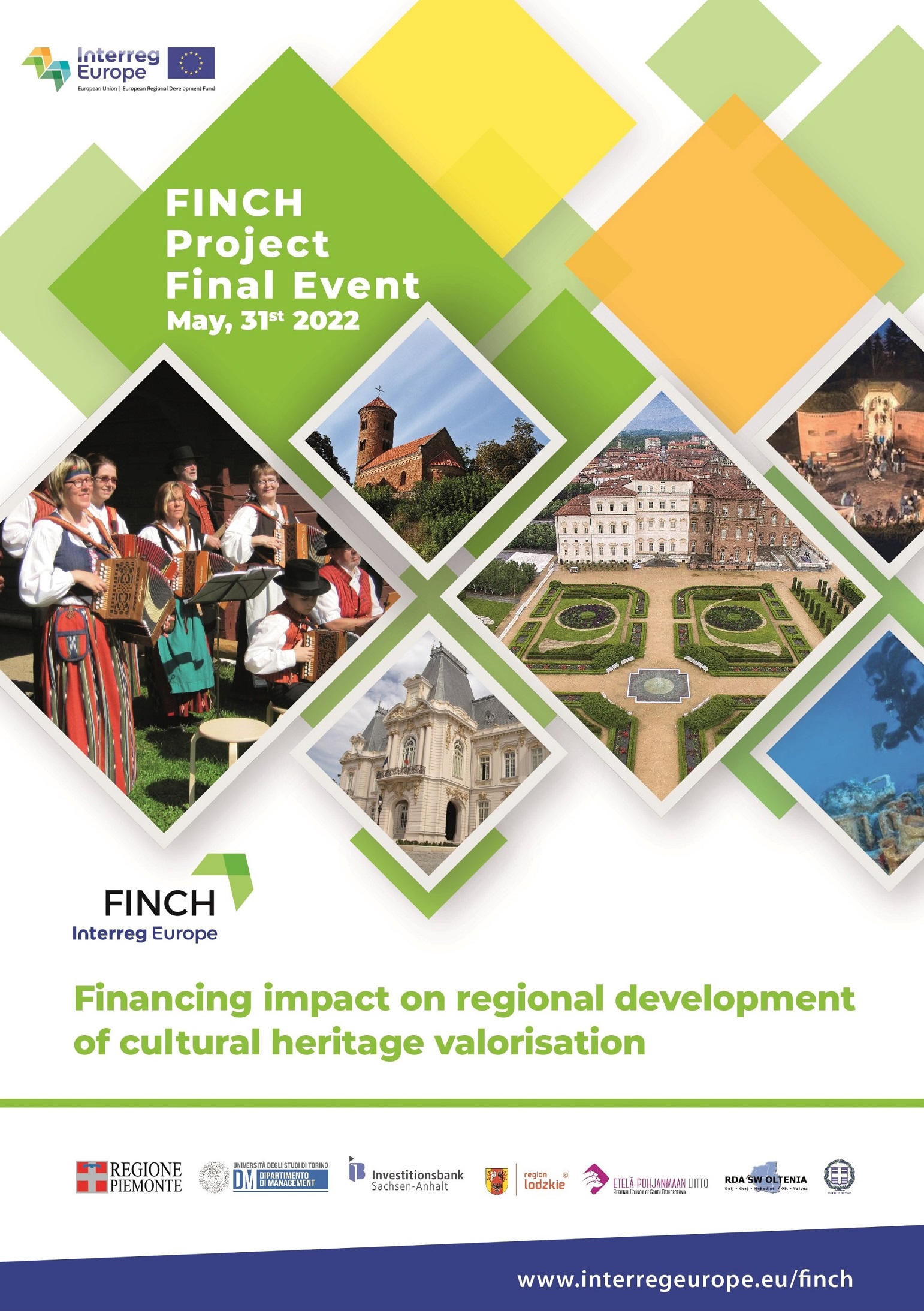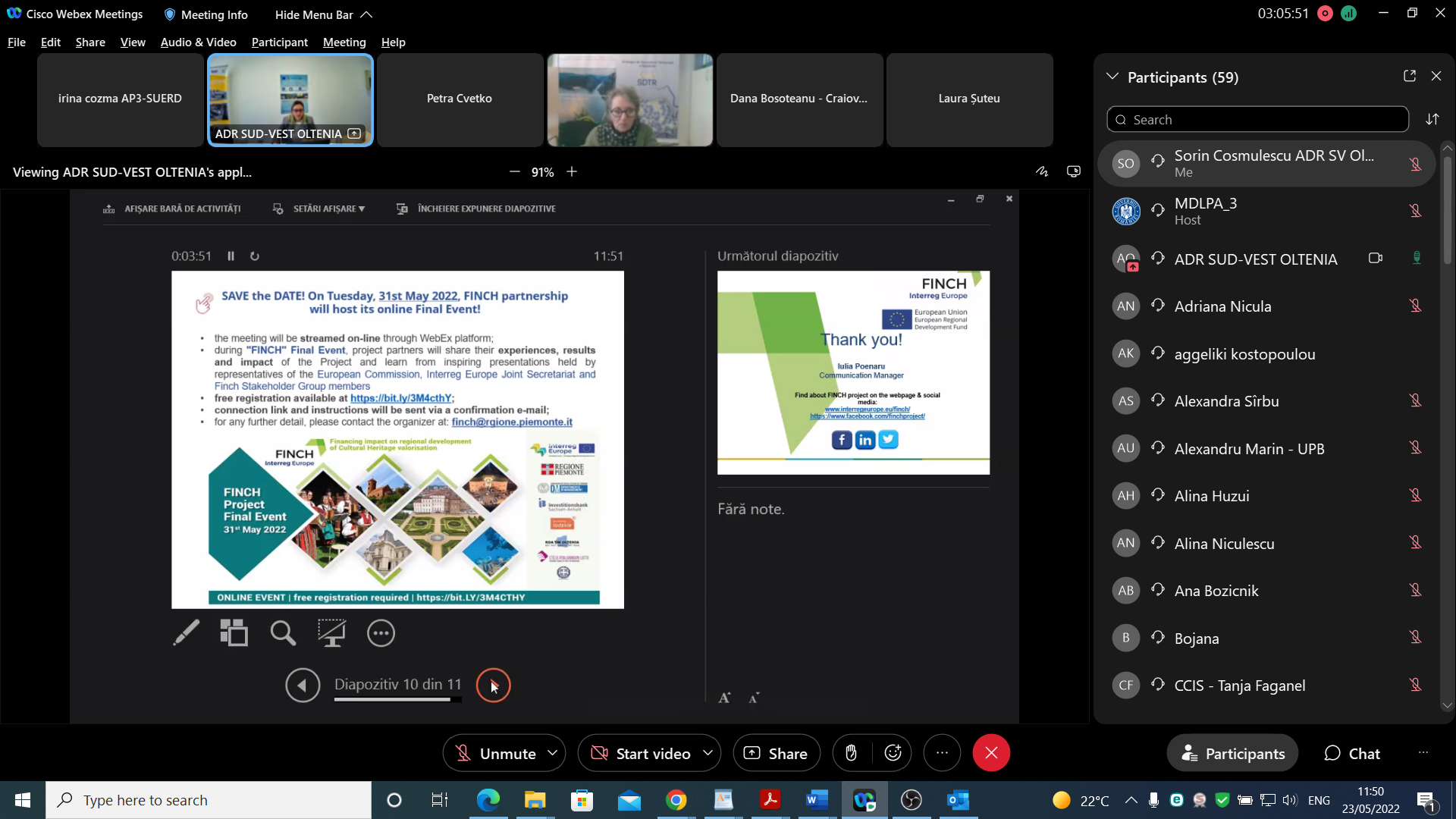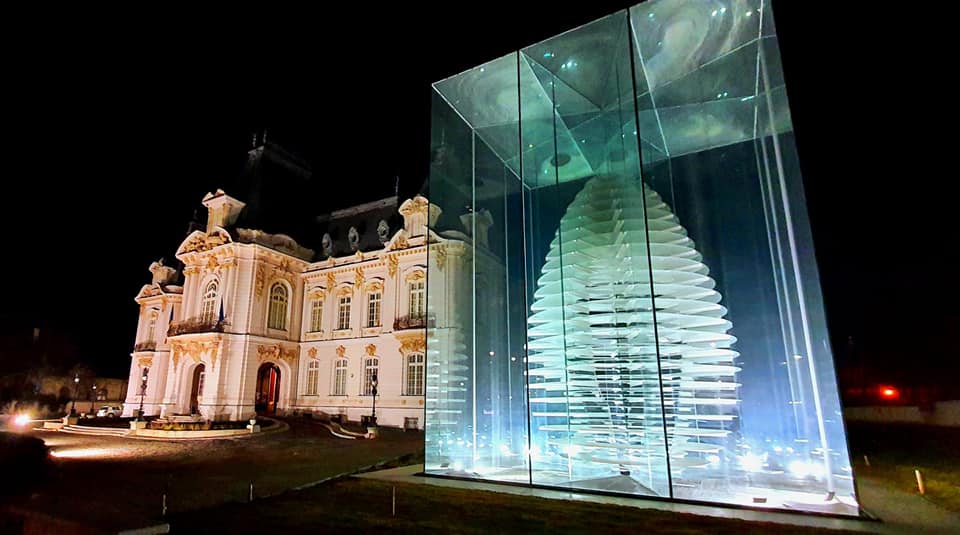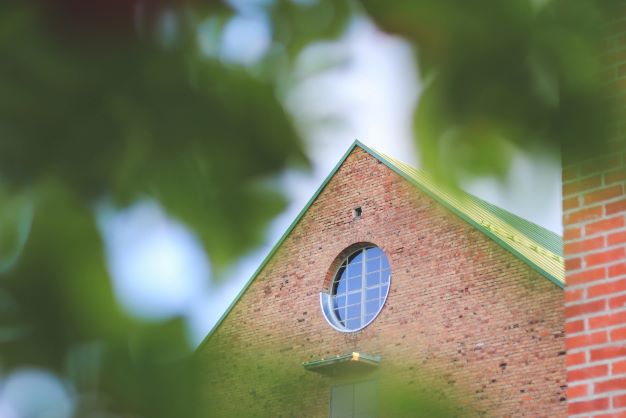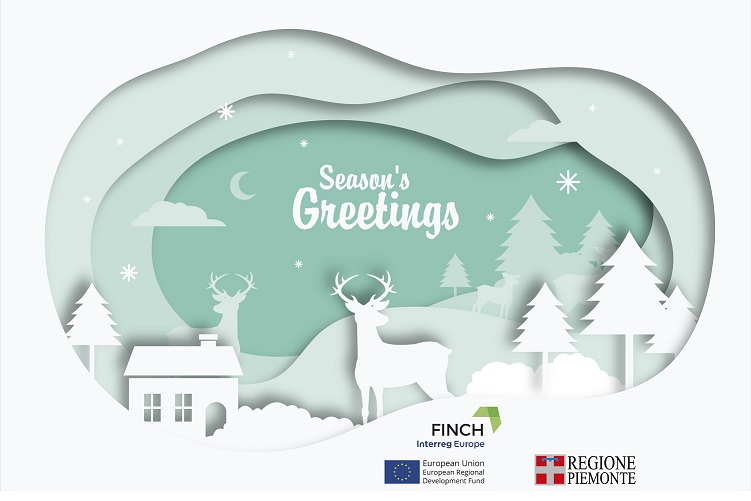Three of Good Practices submitted by FINCH Greek partner, Region of Thessaly, are now published in the Interreg Europe Policy Learning Platform good practice database.
The good practice “Worldwide sponsorships and collaborations to support underwater archaeological heritage in Greece” was reviewed, accepted and published on 31 March 2020 with the following expert evaluation:
The practice is an innovative approach in financing the protection and preservation of underwater cultural heritage of importance for the mankind. Key factor for the success of the endeavour is in finding the right finance mix combining private and public funds, as well as in-kind contribution. The practice is interesting for the diverse benefits for the donors such as tax exemption, social and tourism impact, new business opportunities, scientific acknowledgement. Private entities involved in the protection of the shipwreck also obtained benefits in terms of publicity and promotion. For public authorities the learning potential is also in the role of the state that by providing co-funding acted as a balancing factor among a diverse group of stakeholders involved.

The second good practice “Enhancing cultural heritage with a new perspective through BlueMed: the underwater museums ” unveiles Peristera, the largest Classic Age shipwreck, and also is involving private hospitality industry to offer a cultural imprint to diving tourism.
According to IE expert evaluation, this good practice is an example of an innovative and holistic approach in safeguarding underwater cultural heritage and protecting marine ecosystem. It demonstrates how to successfully support a sustainable and blue model for tourism development. The learning opportunity is in the multi-disciplinary plan (management models, innovative technologies) for underwater museums, diving parks and knowledge awareness centers which can be further studied. Another essential aspect of the practice is the strong focus on innovation such as setting up of the web-based platform ‘Underwater Natural and Cultural Routes in the Mediterranean’ as well as the idea of common tourism promotion and networking of underwater heritage sites. The overall concept and approach can serve as an inspiration for other regions with maritime cultural and natural heritage interested to protect and valorize their heritage.

Another good practice submitted by Greek partner and approved by IE PLP expert is “Restoration of the First Ancient Theater of Larissa”. It is now published in the Interreg Europe Policy Learning Platform good practice database with the following expert evaluation:
The practice is a positive example of combining several sources of financing, such as ERDF, crowdfunding, donation, municipal funds, etc. as well as other funds, for the restoration works implemented at a major archaeological site. The learning potential is also in the various governance levels involved in the project (national, regional and local), which required proper coordination. Besides, the practice is also interesting with the fact that part of the funds came from a municipal company, foundation and association. The overall idea for securing financing for a site of this scale and its implementation can provide helpful insight to other local authorities how to find the optimum financing mix for a large-scale heritage project and ensure proper mechanism for cooperation in order to preserve and restore successfully a cultural heritage asset.

These Good Practices will be presented to FINCH partnership during the project’s International Workshop Meeting at Region of Thessaly, Greece.
Policymakers around Europe are now able to consult the Good Practices online and get inspiration for their regional heritage developing work
